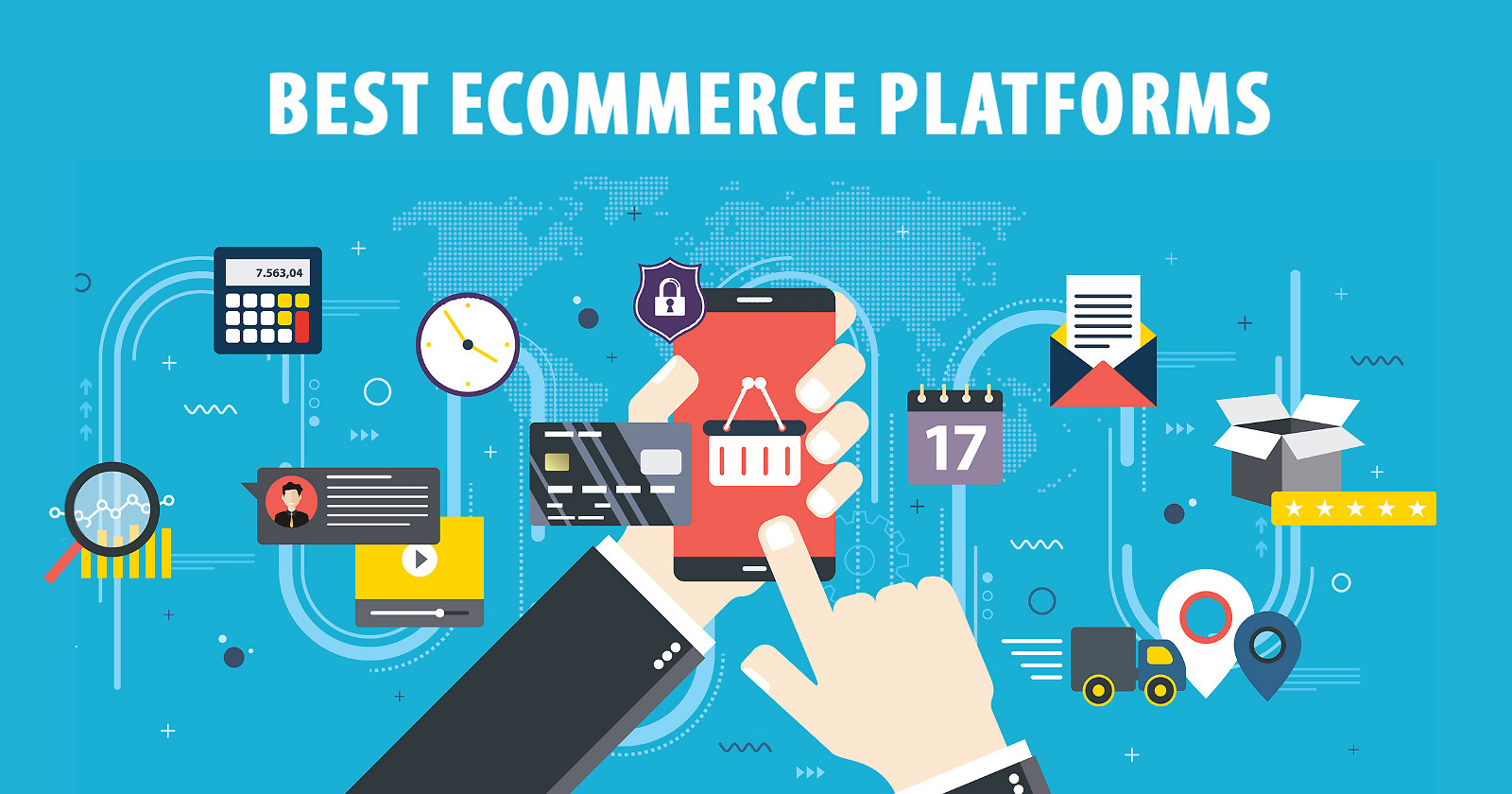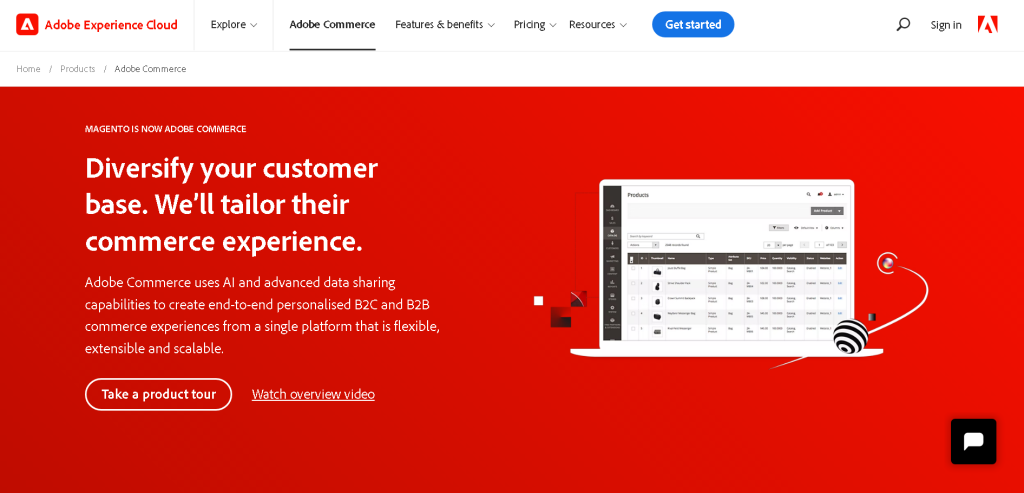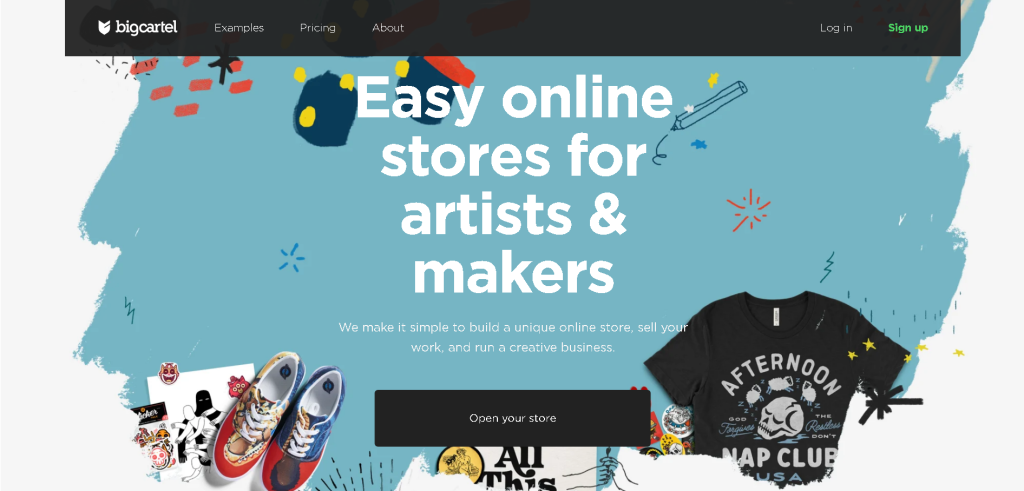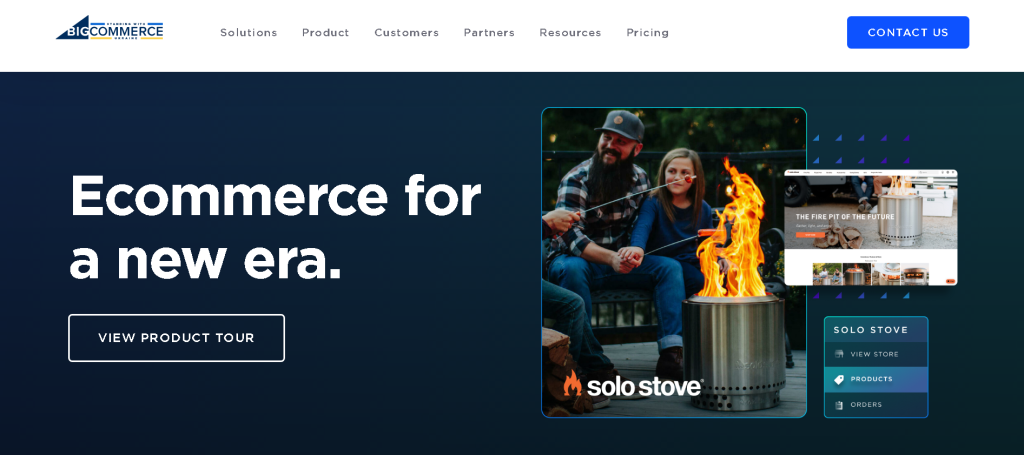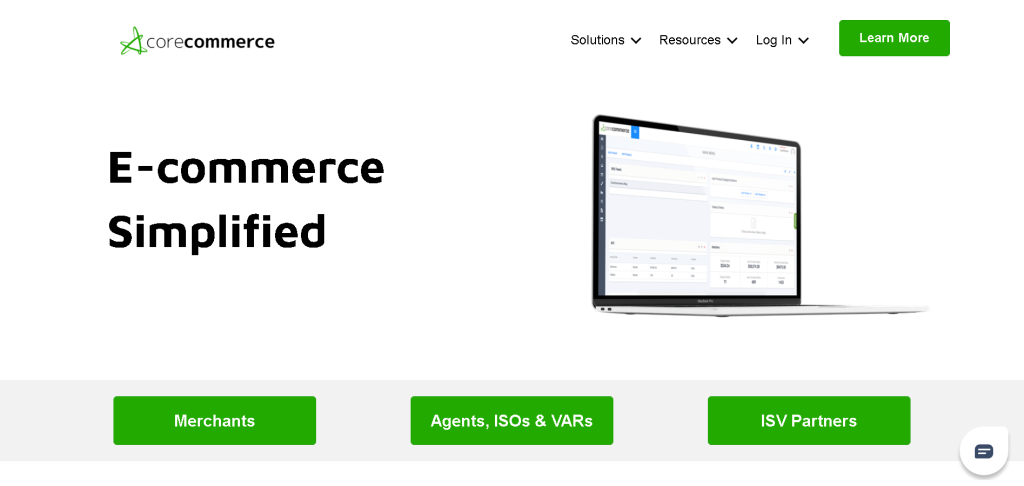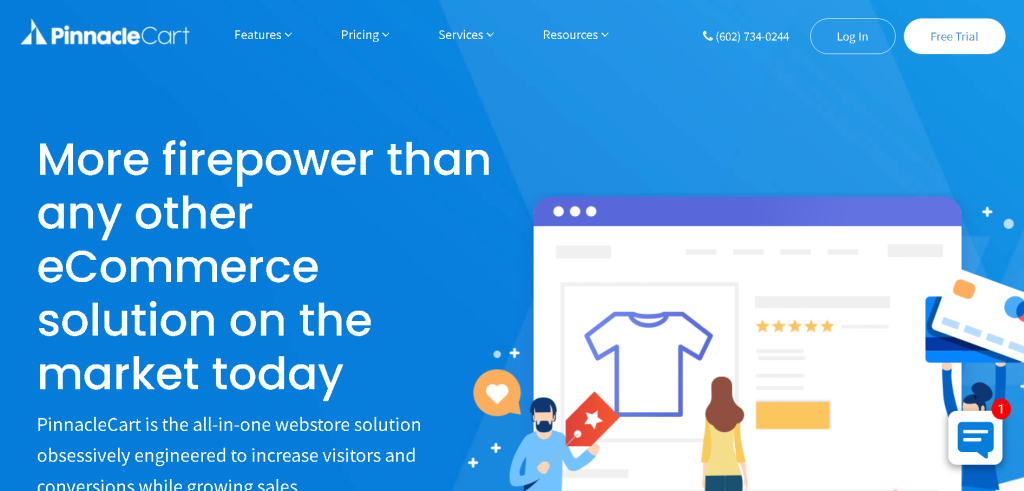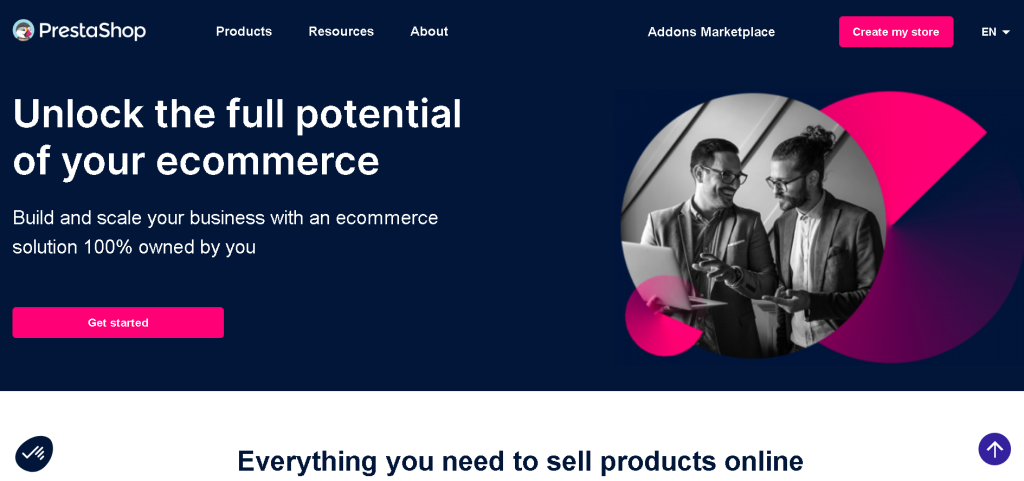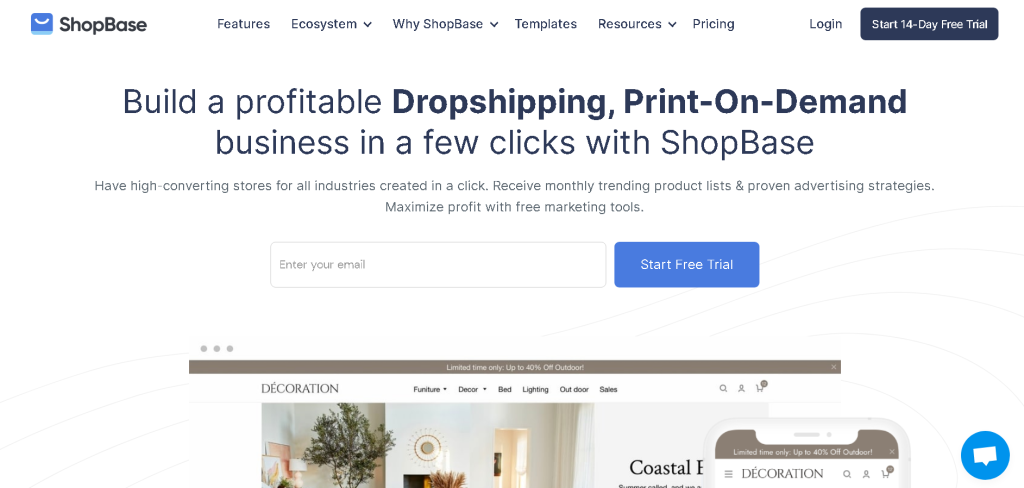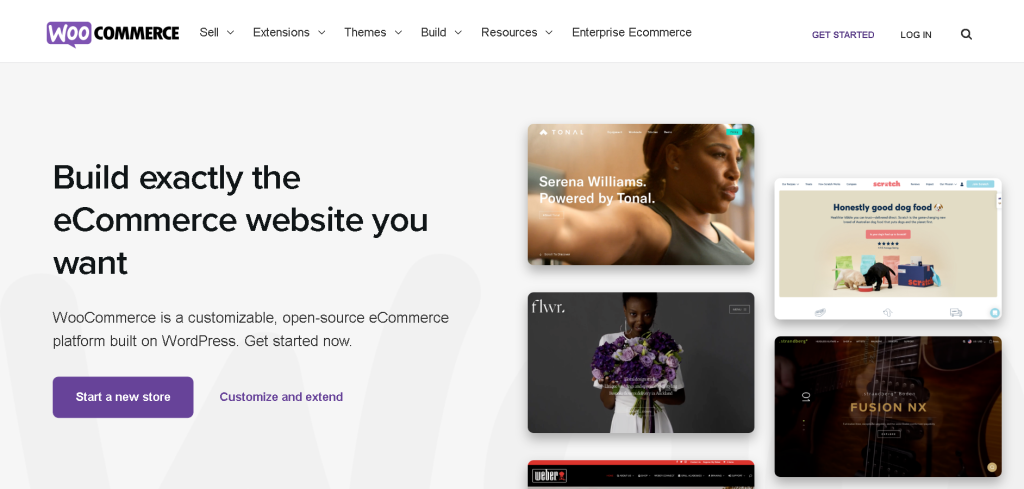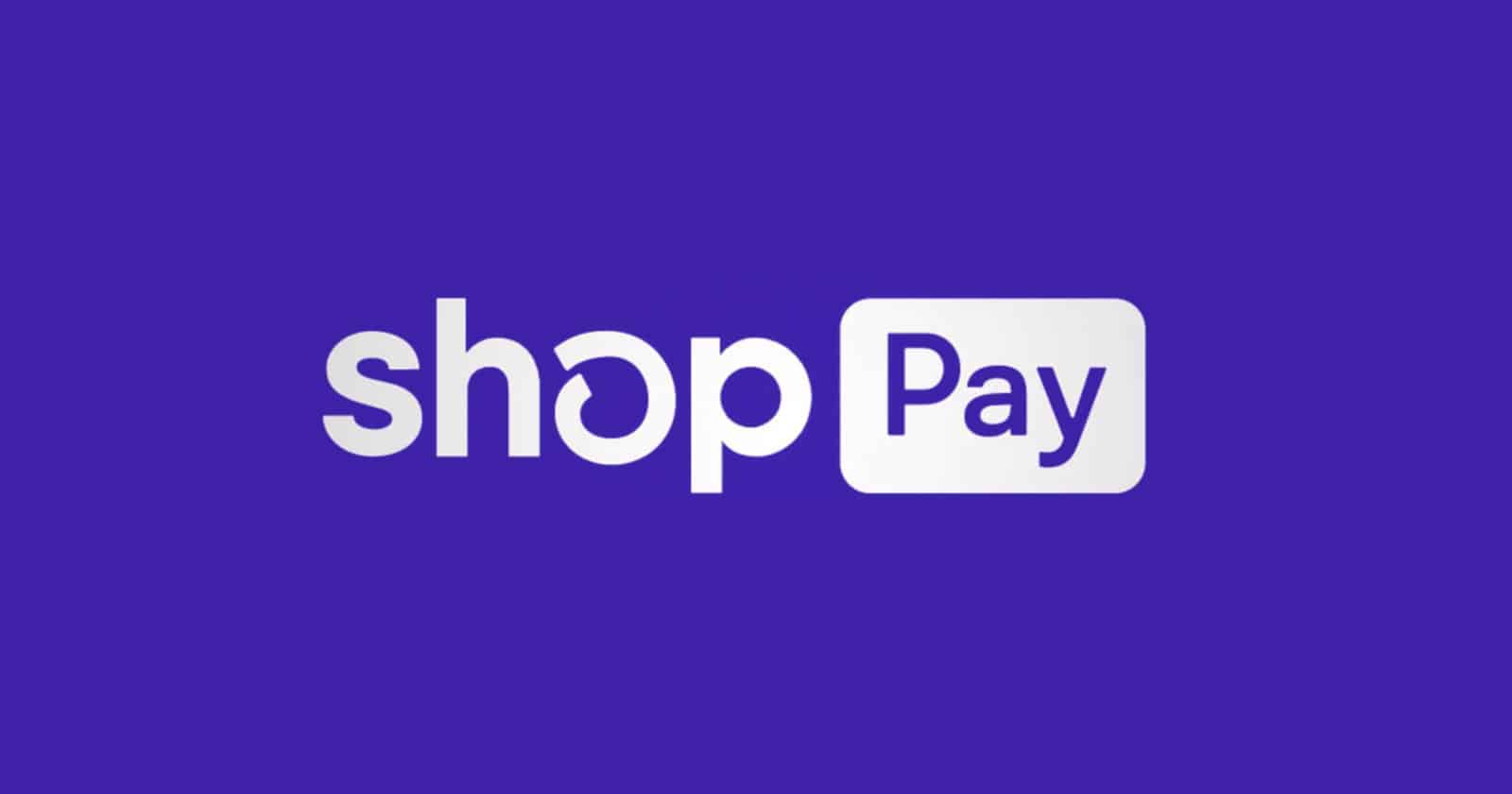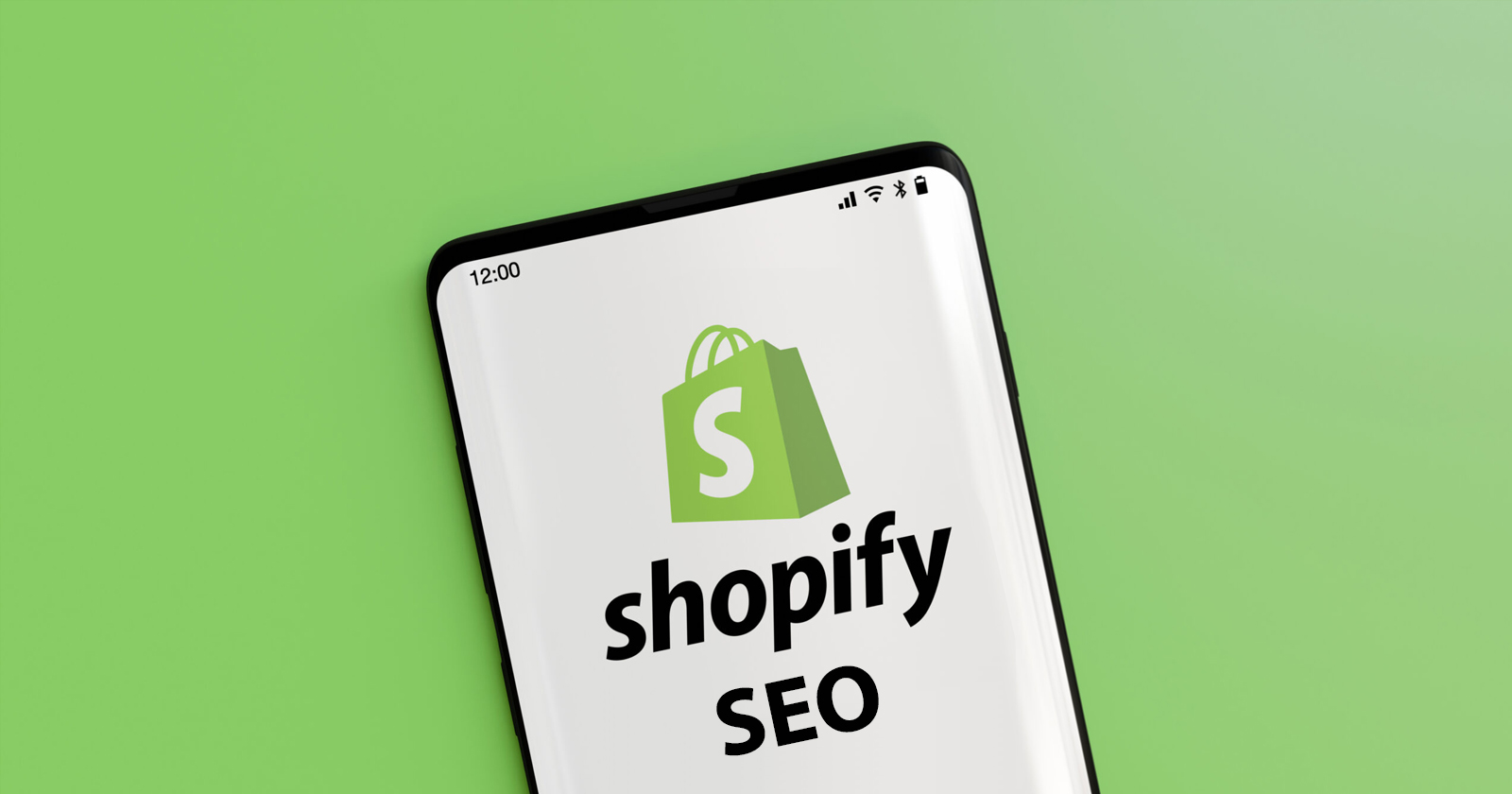If you’re running an online store, you need a platform to power it. There are a lot of different e-commerce platforms out there, so which one is right for you? In this post, we’ll take a look at some of the most popular and best eCommerce platforms and help you decide which one is right for your business.
Selecting the right eCommerce platform is critical to sell your products online. The best eCommerce platforms can assist you in meeting your objectives, from simple store management to secure payment processing.
Also, Read: Shop Pay Reviews: What is Shop Pay and How Does It Work?
By selecting the best eCommerce platform, you will be provided with all of the tools you need to quickly and easily create a captivating and fully functional online store. The platforms could also help you do basic eCommerce SEO and provide you with a capable support staff to guide you through every step of the journey.
However, given the wide range of eCommerce platforms and packages available today, making such a decision can be both difficult and perplexing. You have to take care of several factors including eCommerce website design, SEO, website maintenance cost, etc. Still, creating an eCommerce store has never been easier – so, if you are thinking about opening your first online store or expanding your brick-and-mortar business online, now is the time.
In this post, we have ranked and reviewed the 15 best eCommerce platforms so that you can choose the best one for you.
What is an e-Commerce Platform?
An e-Commerce platform is a software application that allows merchants and consumers to conduct online transactions. Web hosting, inventory management, payment processing, marketing, order fulfillment, and other functions are all managed by eCommerce platforms.
While most people consider their eCommerce platform to be nothing more than a tool that allows them to list products and accept payments online, a true eCommerce platform is much more. Your eCommerce platform should function as a complete business command center, allowing you to manage everything from inventory to marketing.
It should allow you to process payments while also providing you with easy access to all of the tools you need to sell online, such as your own online store.
What Are The Types of eCommerce Platforms?
Typically, there are two types of eCommerce platforms when differentiated on the basis of hosting. You must have a hosting solution in place before you can make your online store public. Hosting stores your data on a server, allowing internet users to visit your site and view all of its content.
Every website is hosted somewhere, which means it has its own server space provided by a provider. Some eCommerce platforms include hosting, while others require self-hosting or open-source hosting.
Hosted Platforms
A hosted platform is provided by some website builders. In this case, you won’t have to deal with the hassles of self-hosting or third-party hosting, as well as the associated fees. For example, Shopify stores include website hosting in every plan.
All Shopify updates are automatic and painless, ensuring that your site is always up to date. Using a hosted eCommerce platform allows you to focus on running your business rather than putting out fires caused by downtime and the need to fix bugs.
Self-Hosted Platforms
Self-hosted, or non-hosted, eCommerce platforms require merchants to use their own server space or pay a hosting provider to rent space. Because you are responsible for updates, maintenance, and bug fixes, ongoing website management becomes complicated. This necessitates a significant amount of internal resources that could otherwise be allocated elsewhere.
Self-hosted platforms are typically open source, and your website data is hosted by a third party. Fees are charged by third-party sourcing options for their services, and these costs quickly add up.
These hosting services frequently use tiered pricing structures, which means that those on the lowest plans do not get much in the way of customer support. This can leave you hanging at critical times, such as when traffic increases due to unexpected press coverage.
How to Choose The Best eCommerce Platform?
With so many eCommerce platform options, it is critical to consider which features are most important to your business. After all, what works for one seller may or may not work for another. For example, if you only sell seven different items, you might not need software that can handle a large inventory.
Alternatively, if you have a physical store but want to expand online, you will need a platform with POS capabilities so that inventory automatically syncs no matter where the purchase is made. Aside from the necessary features, you should also consider your budget, the ease of use, whether you require multichannel selling, and whether the platform includes an SSL certificate.
This certificate is required because it informs customers that it is safe to enter credit card information when placing an order.
How Did We Evaluate eCommerce Platforms?
To find the best eCommerce platforms for you, we examined dozens of platforms and compared pricing, features, and ease of use. When narrowing these options, we also considered whether the platform supports inventory management and marketing automation.
Pricing: Running your eCommerce store shouldn’t cost you more than you make, so we avoided platforms with exorbitant fees or prohibitively high monthly fees. Similarly, we chose platforms that provide excellent value.
Functionality and Features: Standard features assist sellers in quickly getting their stores up and running, while some platforms offer additional options such as POS and advanced reporting.
Simple to Use: Small changes to how your site looks and runs should not require the services of a developer. Each of our recommendations has drag-and-drop functionality, so you don’t need to know any coding to make changes to your website.
Inventory Control: When a customer places an order, your inventory should decrease proportionally without you having to make any manual adjustments. When adding inventory, you should be able to do so from a single screen.
Marketing Features: You do not necessarily need a platform that lets you sell on Amazon and eBay at the same time. However, you must have a platform that allows you to easily perform basic SEO and professional SEO services for which are not too costly.
Top 15 Best eCommerce Platforms (in alphabetical order)
Adobe Commerce, formerly known as Magento, provides real-time inventory control, SEO features, marketing automation tools, and multi-store functionality.
Adobe Commerce is a non-hosted eCommerce platform designed for developers who want a powerful, customizable system. While this has many advantages for brands looking for a completely customized platform, it also has many drawbacks in terms of complexity and cost. To build and manage the entire infrastructure yourself, you must have advanced coding and development skills.
Magento also lacks tools for developing a unified multichannel strategy. There is no simple way to enable social commerce or marketplace selling in Magento, and the same goes for foreign currencies. If you intend to go global, Magento may not be the best eCommerce platform for you.
To use Adobe Commerce, you will most likely require the services of designers and developers, as well as costly maintenance and support, making it difficult to calculate your total cost of ownership. Only custom pricing is available with this platform and there is no free trial period.
Adobe Commerce Pros & Cons:
| Pros | Cons |
| 1-Click selling available | Requires too much memory to perform well |
| Great SEO features | Expensive plans |
| Flexible hosting options | Needs skill development to use the platform efficiently |
| Highly customizable themes | Costly themes |
Big Cartel is a fully hosted eCommerce platform and website builder created specifically for makers, artists, and crafters—the types of businesses you would find on Etsy. Big Cartel provides custom templates, domain name registration, and marketing tools.
While you can customize the look and feel of your site, Big Cartel restricts merchants to only five images per product. Payment and integration options are also limited, making scaling as a multichannel business much more difficult.
Pricing is determined by the number of products sold, so it can become quite expensive as your business and product collection expand. Five products are free; 50 products are $9.99 per month; 250 products are $19.99 per month, and 500 products are $29.99 per month.
Big Cartel Pros & Cons:
| Pros | Cons |
| Budget-friendly platform | It limits the number of products you can sell to 500 |
| The free plan is functional and generous for anyone with just a couple of items to sell | The technical SEO setup is poor |
| All the Big Cartel templates are free | The POS features on offer are basic |
| Easy to use | Lack of two-factor authentication |
BigCommerce, which was founded in 2009, is now one of the leading eCommerce platforms, offering a superb level of scalability for online stores, which means it can track and shape your company’s growth.
BigCommerce, like Shopify, offers a variety of templates and themes to help stores look their best while also getting up and running quickly. Users can also design their own stores or hire BigCommerce designers to do so. Instead of just an online store, the platform includes a full-featured CMS that allows users to run an entire site.
Users can take advantage of detailed and flexible product management, optimized search engine rankings, and a wide range of integrated marketing tools and analytics.
Payments can be accepted through over 65 pre-integrated gateways, and shipping details can be tailored to the needs of the business. Some new features have recently been added, such as support for Amazon Import, Link, and Shopping in Instagram Stories. The platform supports over 140 currencies and offers automated order processing, flexible tax rules based on where orders are made and shipped.
In terms of support, BigCommerce provides telephone, live chat, and email support, as well as access to a team of eCommerce experts who can provide advice and guidance about online selling. Their experts are Google Analytics and Adwords certified.
While BigCommerce is not the most user-friendly eCommerce platform available, its 15-day free trial allows you to test everything out and see how it works for you.
BigCommerce Pros & Cons:
| Pros | Cons |
| Suitable for both small & big stores | Annual sales threshold |
| No transaction fees | No email marketing tools |
| Solid SEO features | Lacks subscription options |
| Great with multi-channel selling | Inconsistent loading speed |
CoreCommerce, founded in 2001, specializes in providing eCommerce services to small and medium-sized businesses. The company emphasizes simplicity and transparency while providing an easy-to-use platform with no hidden fees.
The most distinctive aspect of CoreCommerce is that all of its features are available to all customers, regardless of plan. The pricing is determined by the number of products you can add to your store (with the most affordable plan, you can add up to 150 products), the number of email accounts, the amount of bandwidth, and the GB of storage space. All plans also include a $50 credit for Facebook ads.
CoreCommerce, like other eCommerce providers, provides functionality for store design, product management, order processing, and marketing. Among its core features are unlimited product customization options, an integrated blogging engine, and secure hosting provided by Rackspace with a 99.99% uptime guarantee.
To try CoreCommerce for free, you can sign up for their 30-day free trial, which requires no credit card information.
CoreCommerce Pros & Cons:
| Pros | Cons |
| Users have a plethora of help and support resources at their disposal | Limited storage capacity |
| 15 day free trial | Useful features limited to top tier plans |
| Each plan includes a shared 256-bit SSL certificate | Lack of modern marketing options |
| Mobile friendly templates | Inconsistent product updates |
PinnacleCart is an eCommerce platform that focuses on user experience and conversion rate optimization. They also have powerful SEO features, such as the ability to index your site on search engines such as Google, Bing, and Yahoo. Additionally, you can increase your product visibility further by syndicating your products and services to shopping platforms like Facebook, Amazon, eBay, and more.
Plus, Buy Buttons allow you to place your products on other websites or blogs and users can purchase your items from these other pages. In addition to Buy Buttons, their enhanced product tools let you create dynamic product listings. These listings dynamically generate tags, manage inventory, display various images, and create an unlimited number of categories and product attributes.
These characteristics apply to both physical and digital products and services. They also have many integrations with other software tools. The control panel allows you to manage every aspect of your eCommerce business in one place, and their Apps Center allows you to quickly connect to apps such as Avalara, Quickbooks, Shipwire, and others.
PinnacleCart offers three main plans ranging in price from $44.99 to $199.99 per month.
The $44.99 Startup Plan includes no transaction fees, an unlimited number of products, and an unlimited number of admin accounts. A one-page checkout, real-time shipping quotes, Google Shopping, predictive search, product syndication, and a shared SSL are also included.
The $199.99/month Advanced Plan adds features such as a dedicated SSL certificate, unlimited disc space and bandwidth, and priority support. One intriguing feature is available to those who want to host their eCommerce site on their own server. They can get a PinnacleCart perpetual license for $1,495 per domain.
This includes all of the advanced plan’s features, one year of technical support, one year of access to upgrades, and a 20% discount on additional license purchases.
PinnacleCart is a solid all-around eCommerce platform that prioritizes user experience and conversion rate optimization. It is a good choice if you want to dynamically create products and easily sync your product catalog with other platforms like Facebook, Amazon, and eBay.
PinnacleCart Pros & Cons:
| Pros | Cons |
| Affordable eCommerce platform | Developer experience required to setup |
| All in one eCommerce solution | Hosting mandatory in own server |
| SEO friendly features | Several technical issues |
| Extensive customization possible | Frequent product updates disturbing site SEO |
PrestaShop is a low-cost open-source eCommerce platform that is ideal for new businesses with a technical background. PrestaShop users do a lot of troubleshooting themselves with the help of the community because there is no built-in customer support and integrations can be hit or miss.
Inventory tracking, an online shopping cart, international selling, and analytics reporting are examples of business tools and features. You also have a lot of control over your PrestaShop site’s privacy and security settings.
Overall, maintaining your PrestaShop eCommerce site can be difficult due to third-party hosting, a plethora of unvetted add-ons and modules, and the time-consuming setup.
PrestaShop Pros & Cons:
| Pros | Cons |
| Easy to install | Limited scalability |
| Budget-friendly | No official support team |
| User-friendly interface | Not suitable for large-scale stores |
| Customization is easy | Developer skills needed to make changes |
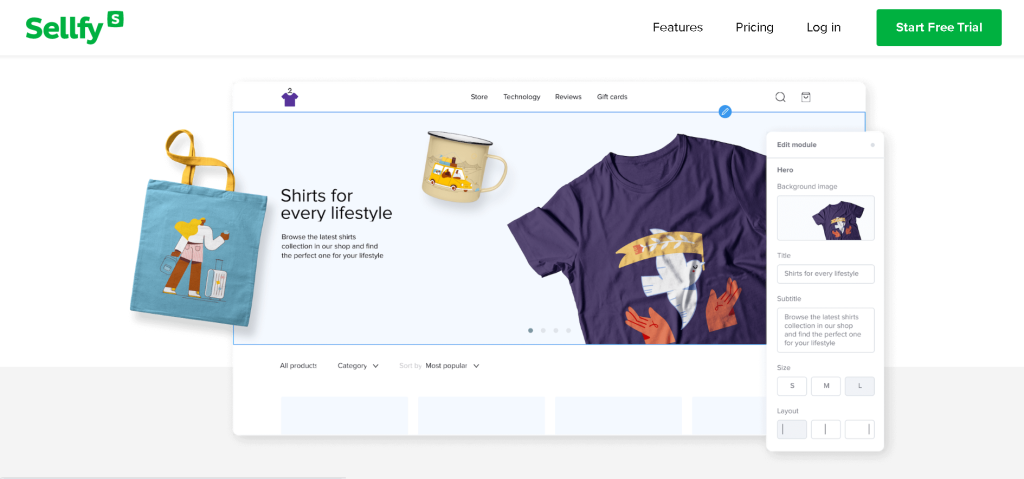
Sellfy is a straightforward but powerful eCommerce platform that enables you to sell digital products, physical goods, and subscriptions all in one place. Their tool was originally designed to sell digital products (such as eBooks, videos, music, and courses), but they now provide a fully-functional platform with all of the features required to sell physical products as well.
Sellfy includes marketing tools and analytics, and it integrates with over 1,000 third-party apps via Zapier. It is ideal for bloggers, creators, and small businesses looking to sell digital products, subscriptions, and physical goods on their website, via buy buttons, and on their social media profiles. It has an easy-to-use dashboard and the ability to set up your site in minutes.
It allows you to easily integrate your website and product pages with your YouTube channel, Instagram page, or Soundcloud account, as well as add buy now buttons. Furthermore, you do not need to install multiple apps for your eCommerce site because Sellfy includes tools for email marketing, discount codes, upselling features, and more.
Because it is cloud-based, you can access it from a variety of devices, including PCs, mobile devices, tablets, and laptops.
Sellfy Pros & Cons:
| Pros | Cons |
| Easy to use | Lacks SEO features |
| Great customization options | Poor PageSpeed performance |
| Built-in print on demand feature | Restricted website customization capabilities |
| Free plan available | Limited integration capabilities |
Shift4Shop, formerly known as 3dcart, has been in business since 1997, making it the oldest of our featured providers here. It was designed to incorporate as many of the most frequently requested eCommerce features as possible into a single platform.
The company claims to operate under six core values: continuous innovation, good service, simple solutions, fostering trust, keeping employees and customers happy, and stimulating prosperity among employees and customers.
Some of the platform’s innovative features include a gift-wrapping module that users can install, a purchase order system, the ability to run a loyalty programme, and the ability to offer recurring orders. Many of these features are highly specific, allowing stores to be highly customized to the needs of each business.
Stores can be designed using one of Shift4Shop’s many templates, or users can create their own. A quick edit bar makes it easy to make changes to a store’s design. Shift4Shop’s auto-zoom feature brings product images to the forefront, and products can be sold on Facebook via its store integration.
Users can blog directly from Shift4Shop, as they can on other platforms, and tools are provided for creating coupons, sending newsletters, and affiliate marketing.
Shift4Shop is regularly updated, and new features such as the drag-and-drop HTML builder, built-in SEO stats, the home page editor, and scheduled promotions are constantly added. Users can also use the “make an offer” feature, which allows you and your customers to bargain over a price. A B2B quote system is also available, which provides customers with a temporary quoted price after discussing their order over the phone.
Shift4Shop, in addition to its eCommerce platform, provides a variety of professional services such as SEO, PPC, shopping feed management, social media, Facebook ads, and conversion consulting. Help can also be provided to ensure that a user’s store is properly set up. Services include site cloning, custom tracking setup, data migration, and training. Shift4Shop can also provide SSL certification.
Their SEO features are robust, and they are widely regarded as the best eCommerce platform for SEO. Custom URLs, dynamic meta-tags, link titles, and other features are available.
Web hosting is guaranteed to be up and running 99.9% of the time, and support is available 24 hours a day, seven days a week via phone, email, or online chat. You can try out these services for free for 15 days. Their plan starts at $29 per month.
Shift4Shop Pros & Cons:
| Pros | Cons |
| Great built-in features | Complicated interface |
| Change themes anytime | Relatively expensive plans |
| Useful features like SEO prompt | No mobile app |
| Free plan for US-based users | Customer support is not great |
ShopBase is a brand-new platform that was launched in June 2019. They are well-known for being an excellent tool for dropshipping and white-labeling your products. ShopBase provides fully customizable, mobile-friendly storefronts designed by a reputable design team.
Also, Read: Mobile eCommerce Statistics and Trends 2025
Each page has its own set of settings, and you can also edit the HTML and CSS for each page. You can customize every aspect of your checkout page, which is critical for eCommerce conversion rates. They also provide abandoned cart recovery emails to encourage visitors to finish their purchases.
Aside from that, ShopBase has only a few drawbacks. In comparison to other platforms, their app store has fewer apps to integrate with. Furthermore, if you are not interested in dropshipping, print-on-demand, or becoming a white-label business, ShopBase is not for you. Their plans begin at $19 per month, and their Basic Base plan includes everything you need to get started and make your first sale.
ShopBase Pros & Cons:
| Pros | Cons |
| Highly optimized store for conversions | Limited themes |
| Mobile app available | Limited number of apps |
| Beginners-friendly dashboard design | Too few users |
| All apps in the app store are free | Lack of platform-based security features |
As of this writing, Shopify is the most well-known eCommerce platform, and it has come a long way since its inception in 2006. True to its word, you do not need any technical or design skills to use Shopify to create a beautiful online store.
You can have your online store up and running in a matter of hours with Shopify. Users can select from a variety of templates or design the look and feel of their store themselves. Shopify also accepts a wide range of credit cards, has Level 1 PCI DSS compliance and an SSL certificate, and provides round-the-clock customer support via phone, live chat, and email.
The Shopify platform includes a full-featured CMS that allows users to manage the functionality and layout of their online store. They can also do it on the go by using Shopify’s mobile apps, and the platform is fully optimized for visitors who use desktops or smartphones to access it.
A live chat function will allow you to converse with your customers in real-time, and there is also built-in support for 3D models and videos. You can also create customizable storefronts on Facebook and Instagram.
Shopify also provides unlimited hosting for their stores, detailed analytics on how visitors interact with the store, and powerful marketing tools like SEO optimization, discounts, a coupon engine, gift cards, and email marketing tools.
Shopify has three pricing plans, the cheapest of which costs. However, all plans include free trials. So, if you want to test out Shopify before investing any money, you can sign up for a free 14-day trial.
Also, Read: Shopify SEO Guide: How to do Shopify SEO
Shopify Pros & Cons:
| Pros | Cons |
| Simple to start with & easy to use | High processing fees for the basic and starter plan |
| Access to variety of features | Difficult to migrate |
| Large selection of themes | Weak at SEO-related factors |
| Single-click selling apps available | No email hosting access |

Squarespace is the next website builder with an eCommerce platform option. Squarespace, like Wix, employs drag-and-drop functionality that requires little technical knowledge. Because both platforms are primarily website builders rather than online selling platforms, adding eCommerce functionality requires some customization.
If you want to sell online, Squarespace takes time and patience to set up, and there are only two payment integrations, Stripe and PayPal. You could even outsource it if you have the funds. Squarespace has good inventory tracking tools once you’ve set up the eCommerce function. Higher-tiered plans also allow you to sell gift cards and subscription-based products.
If you do not want to deal with the hassle of converting your Squarespace website into a full-fledged online store, you can simply add the Shopify Buy Button. You can add a small embeddable code to your Squarespace site for $5 per month and use Shopify’s advanced eCommerce tools to handle the rest.
You can add an unlimited number of products, use secure checkout with over 100+ payment gateways, track sales and growth trends, easily integrate orders and shipping, and get global tax and currency support.
Squarespace Pros & Cons:
| Pros | Cons |
| Easy to set up | No marketing automation integration |
| Great for small stores | No amazon integration |
| Solid SEO tools | Speed is slow, considering the price |
| Stunning designs | Limited functionalities |
Volusion is a company founded in 1999 and launched in 2002 by Kevin Sproles, who was 16 at the time. Volusion is a solid all-around eCommerce platform with a lot of functionality and a new Content Builder that rivals the ease of use of the Elementor WordPress plugin.
Their Personal Plan costs $29 per month and includes unlimited products, online support, and no transaction fees.
There is also a Professional $79/month plan and a $299/month Business Plan, which includes more in-house support. A Volusion site has an in-house SEO and marketing team that can assist with digital marketing and increasing search engine visibility. Every month, higher-tier plans include $100 in quick wins.
If you own a business, this could include a quick web design fix, SEO optimizations, or other help to improve website performance.
Volusion Pros & Cons:
| Pros | Cons |
| Comprehensive features | Unclear pricing |
| Ease of use | Disappointing technical SEO capabilities |
| Lots of templates | Minimal CMS & analytics capabilities |
| Extensive support | Limited design options |
While Wix is best known as an all-purpose site builder, it can also function as a fully-functional eCommerce platform. That is, if you buy one of Wix’s two premium packages.
While most eCommerce platforms strive to be as complex as possible, Wix provides a much simpler solution for small businesses that don’t require all of the bells and whistles of a full-fledged online store.
Furthermore, because Wix provides a comprehensive set of site-building tools, creating an eCommerce store is remarkably simple, as is managing it – no coding skills are required. The end result is an eCommerce platform that anyone should be able to use with little difficulty.
With over 800 design templates to choose from, you will have no trouble getting the look and feel you want for your eCommerce site. However, there is one disadvantage to these themes: once you choose one, you’re stuck with it, and the only way to change themes is to restart everything.
You can choose from a global network of payment providers, including all major credit card companies (Visa, Mastercard, Discover, and so on), as well as other payment systems such as PayPal and Stripe, thanks to Wix Payments. Overall, Wix is a good option if you want a simpler, beginner-friendly alternative to some of the full-frontal web store building solutions.
It maintains a user-friendly interface while providing a plethora of powerful eCommerce features such as SEO tools, an extensive app store, support for multiple currencies, the ability to sell on e-marketplaces, built-in support, and much more. The most basic plan costs around $5.
Wix Pros & Cons:
| Pros | Cons |
| Numerous free themes available | No option to switch between themes |
| Simple to use & set-up | Lacks website security features |
| User friendly interface with global payments options | Several themes are difficult to customize |
| LIVE support for users | Absence of advance automation & upselling features |
WooCommerce is especially familiar to WordPress users because it is essentially an add-on to the popular blogging platform. WordPress has traditionally been used for content-driven websites rather than eCommerce, so WooCommerce is WordPress’s solution for those who want to sell online.
Because WordPress is first and foremost a content management system (CMS) and then an eCommerce platform, many of the selling features are simple or rely on the addition of apps. And, while there are numerous apps and plug-ins available for your store, the more you use, the more likely it is that you will break something. And, given the limited support options, this isn’t always a risk worth taking.
Overall, WooCommerce’s fragility and unreliability make it difficult not only to build but also to maintain an online store. Furthermore, because it is not hosted, you will have the additional task and cost of managing your website hosting. It also lacks PCI compliance, putting your company at risk when accepting payments.
WooCommerce estimates costs to be $120/year for hosting, $15/year for domain name registration, up to $100/year for your site theme, up to $108/year for shipping, 2.9% plus $0.30 per sale, up to $348/year for marketing and communications, up to $79/year for SEO, and up to $65/year for SSL certificate. All this could round up to be a substantial cost for any business owner and often discouraging for small businesses.
WooCommerce Pros & Cons:
| Pros | Cons |
| Makes it easy to create products and orders | Template customization requires technical capabilities |
| Integrates easily with different CMS and integrations | Can sometimes be dependent on other plugins |
| 1-Click selling available | Backend dashboard is slow |
| Exceptional SEO features | Expensive hosting |
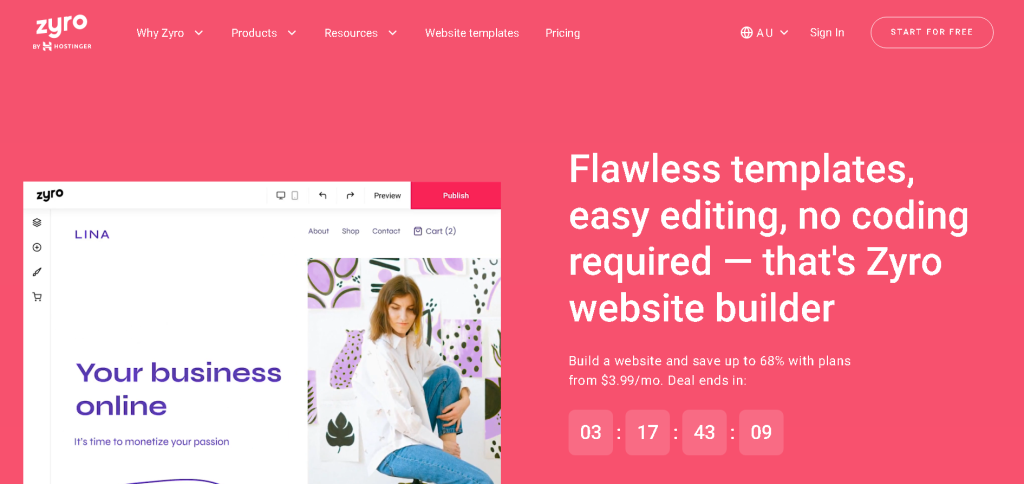
Zyro is a low-cost SaaS platform aimed at small businesses. It is a product from the web hosting company Hostinger, and it is a relative newcomer to the market. They provide a variety of AI tools to help business owners in addition to a website builder. Zyro is a simple website builder that also allows you to sell products online. It’s simple to learn and reasonably priced.
Zyro (pronounced “zero”) has a refreshing lack of complexity because it was designed specifically for smaller eCommerce stores. It is ideal for anyone looking to earn a few hundred or thousand dollars per month. You do not need to sell much to start making money, and you might never need to hire a web developer to keep the site looking fresh. To use the online store features, you must subscribe to the Business plan. The Business plan starts at $3.99 per month.
Zyro Pros & Cons:
| Pros | Cons |
| Unlimited storage on all plans | Difficult to connect a custom domain |
| AI tools to handle general tasks | Limited support capabilities |
| Simple to use | Mediocre SEO features |
| Suitable for startups and small eCommerce sites | Slow mobile speed |
Conclusion
When it comes down to it, there is no such thing as a one-size-fits-all platform, only the solution that is best suited to your eCommerce business will work for you. Every business has different eCommerce feature priorities, whether it is more payment options, dropshipping capabilities, real-time inventory management, or a user-friendly interface, so the “best” platform for you will be the one that meets your specific requirements.
Take your time weighing your options, and do not be afraid to use free trials to test out each platform’s unique features and benefits.
Frequently Asked Questions
What is the best SEO eCommerce Platform?
There are numerous important ranking factors in eCommerce SEO, including site speed, URL structure, page titles/content, and sitewide HTTPS. In light of these considerations, Wix, Shopify, and BigCommerce are excellent choices.
What is the distinction between an eCommerce platform and an eCommerce hosting service?
An eCommerce platform provides the tools for you to create an appealing page or series of pages for customers to visit and learn more about you, but that website must be hosted somewhere, which is what an eCommerce website host does. Websites are hosted on platforms that can handle the traffic that is directed at them.
